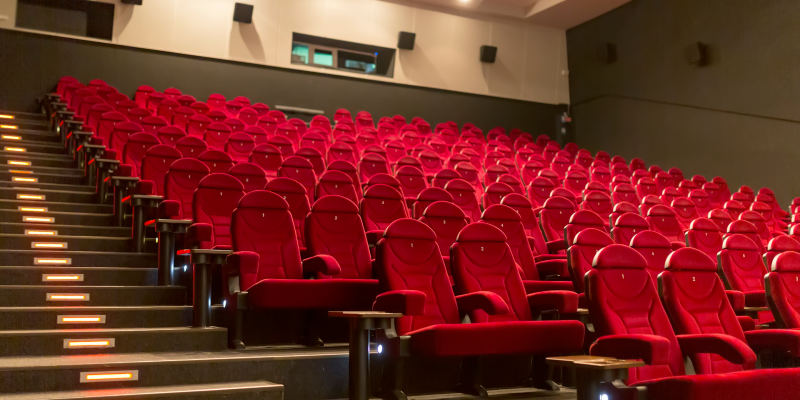Why The Label Life thinks going offline is as important as being online
Lifestyle label believes that online needs to co-exist with offline in today’s world. The brand, which recently opened its first store in Mumbai, aims to have a presence in 11 cities by the end of the year.
Earlier this month, Mumbai-based lifestyle brand The Label Life opened its first store in Bandra, Mumbai. Along with the first standalone store, The Label Life has partnered with Reliance's Project Eve in eight cities, including Delhi, Hyderabad, Bengaluru, and Bhubhaneshwar (their best performing store). The brand is also looking to open their semi-permanent spot in DLF Promenade, Delhi, by mid-September and shop-in-shops in Curations, Chandigarh and Gurugram.
“We will be in 11 cities by the end of the year. We will also continue targeting Tier II cities through our ‘try-on’ events, including one at the end of this month at the gorgeous La Palma in Jaipur,” says Preeta Sukhtankar, Founder and CEO, The Label Life.
It is interesting to note that while several pure brick-and-mortar stores are looking to go online, several offline stores are now trying to go offline (more on that later).

Why go offline?
Speaking of why they chose to foray into the offline world, Preeta says ecommerce has made buying more efficient and discovery less meaningful.
"Our engagement with customers through pop-ins countrywide since 2016 has inspired us to believe in the much debated brick-and-mortar strategy. This breadth of human connection and celebration of personal choice is essential to who we are, and something we want to further develop through varied platforms and all our customer touchpoints. So here we are, launching our first store,” Preeta says.
The Label Life is styled by Sussanne Khan, Malaika Arora, and Bipasha Basu. The design mandate for the store was handed to 02JUNE Design Studio, which is spearheaded by Sankalp Sahu (whose clients include Bvlgari, Prada, and Nike among others).
“We are unlike the conventional fast-fashion store given that while we have aspirational pricing we do want the customer to experience The Label Life-style. So we don’t pack in inventory just the way we don't do it online. You will only find select styles that are essentials for that month, a few of our classics and our made-to-measure swimwear. We want to be in line with what you see online,” Preeta says.
In a market flooded with fashion brands, it is interesting to know how The Label Life created a niche for itself. During the last edition of YourStory’s Techsparks, Preeta had said: “With consumers getting smarter, we are trying to create a lifestyle approach to a brand. Our disruptive approach was to bring together three connoisseurs of lifestyle and get them to dictate our look and style. They are not so much our endorsers as our partners.”
The offline store is a step in that direction.
Focus on the consumer
Preeta has, time and again, emphasised that their collections are designed with the understanding of the Indian woman’s body type and wardrobe challenges, from crease-free work wear to midriff-covering swimwear.
“We at The Label Life are a customer-driven brand and, given our deep engagement and our best-in-class repeat customer base, all we did was simply listen to the customer. We began by doing a series of ‘try-on’ events across the country in partnership with We-Work over the past year. The response was heartening,” she says.

The customer base is like-minded working women between 25-40 years. The team claims to have customers online through its 1 million-strong social media following across channels.
Preeta says the fashion retail business in India is rapidly evolving and expected to grow from $60 billion today to $115 billion by 2026.
The community-driven brand’s Mumbai store features bestsellers, 9-to-9 workwear essentials, statement accessories, and home decor. The average price point is Rs 1,800.
The challenge
The team claims to see anywhere between 80-100 daily walk-ins in the 800 sq ft store and a good conversion rate.
“The biggest challenge for us has been and continues to be maintaining the same experience you have online - our super-clean and uncluttered vibe was unlike what you see in malls here in India but our architects at 02JUNE were able to translate it pretty well,” Preeta says.
The Label Life is one of the few brands that hasn’t had an app till now; but that will launch by the end of this year. The team is looking to become more accessible and reach out to a larger base.
“We analysed and looked to where our biggest customer base is online and that's where we will focus on to open newer stores,” Preeta says.
Going omni-channel
According to a report by Boston Consulting Group, though 70 percent of the nearly 90 million online shoppers in India are influenced by information obtained from the internet, only 16 percent buy online. Barely 5 percent of purchases (16 percent of the value) are made by customers using both, online and offline touch-points. The report adds that the only offline segment dominates, accounting for 78 percent of purchases (58 percent value).
The Label Life is one of the many ecommerce players venturing offline, including Pepperfry, Urban Ladder, Lenskart, Zivame, Caratlane, and Myntra’s Roadster. Myntra is set to launch 50 brick-and-mortar stores for its private labels across cities in two years. This is Myntra’s latest effort in pushing omni-channel retail, by enabling offline stores with advanced tech for better customer experience.
Most of these store plans are similar to Chinese ecommerce titan Alibaba’s “New Retail” model, which provides similar services. Ahead of their famous ‘Double11’ sale last year, Alibaba’s technology had converted around 100,000 retail stores in China into “smart stores” where customers could check out themselves using a QR scan code.
In Alibaba’s experiment in the grocery segment, the customer could even get his or her purchases from the offline store delivered at home.
Will all of Indian’s ecommerce stores work on a model similar to Alibaba’s? It will be interesting to see what lies in store for the consumer.







